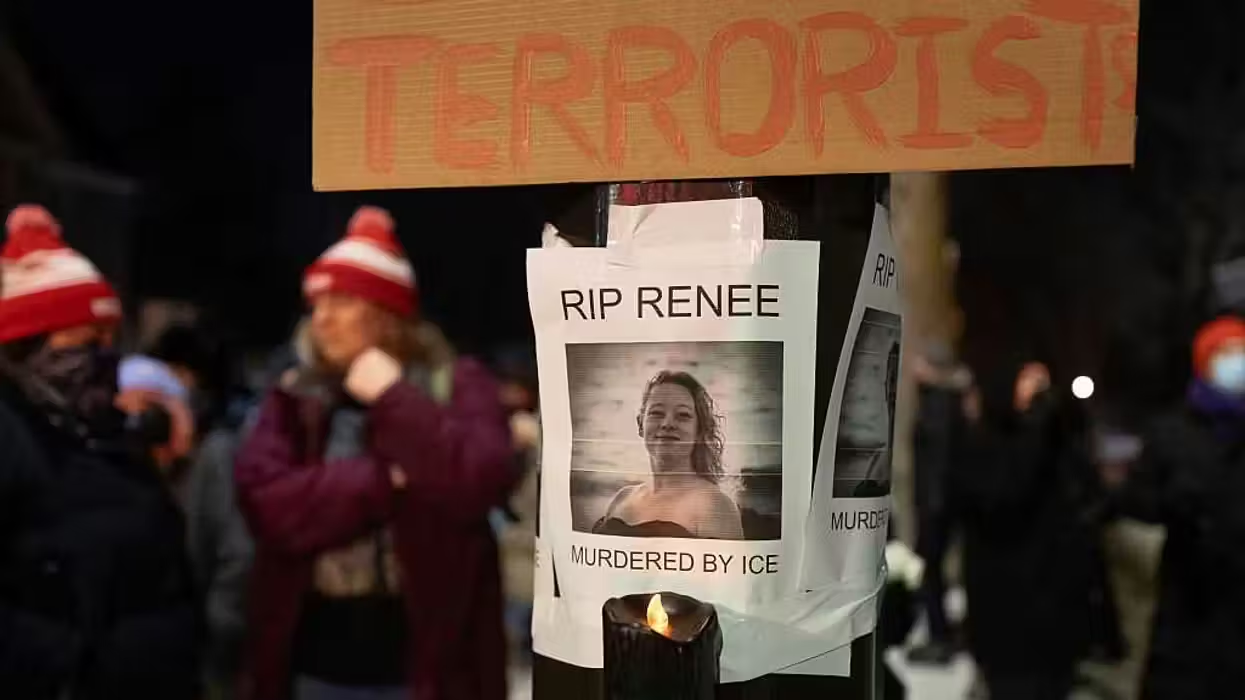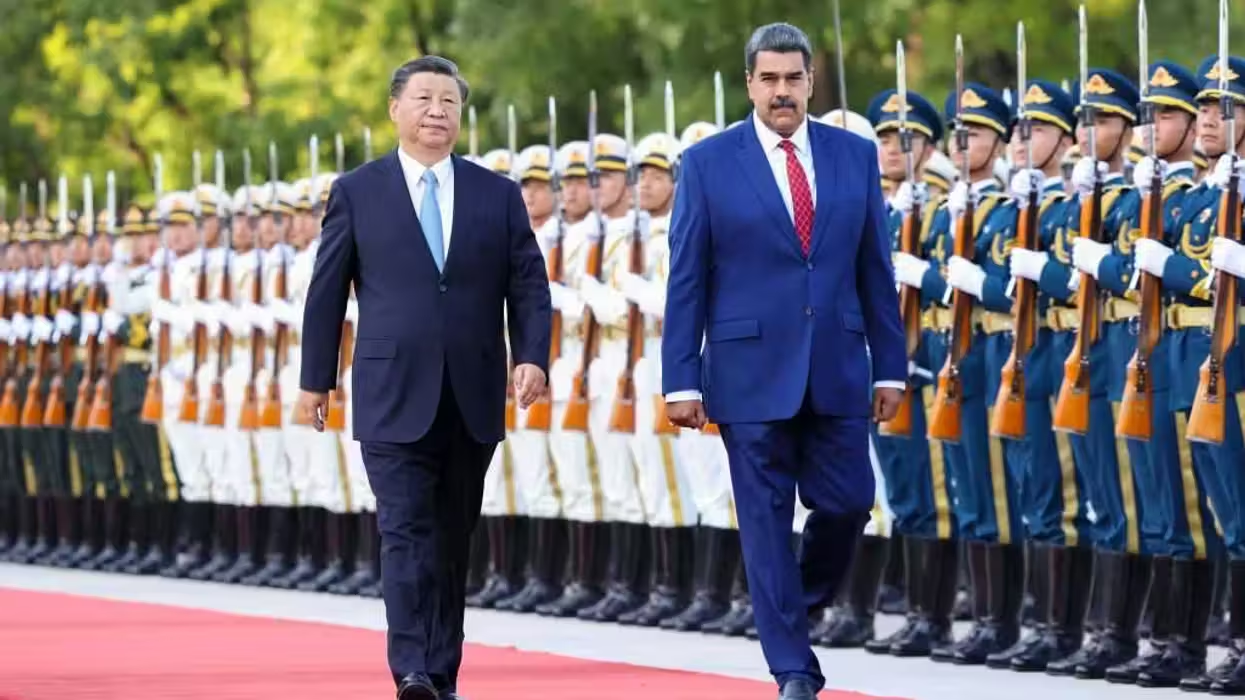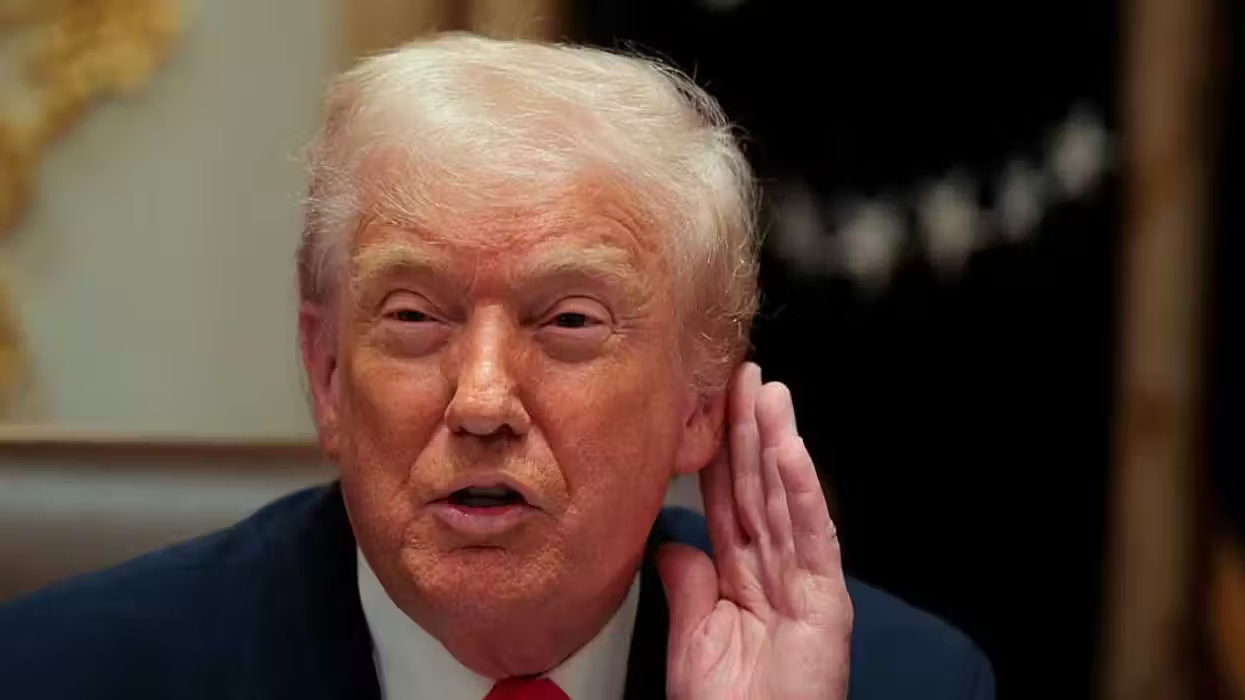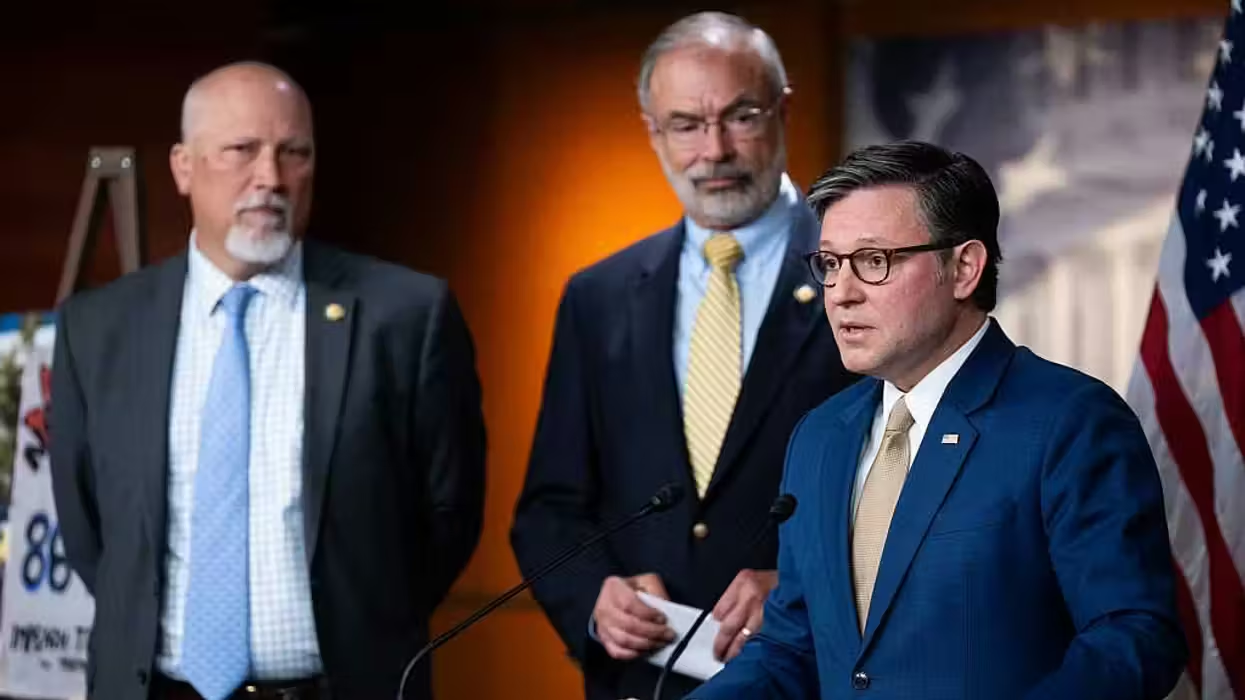A top officer for the U.S. Navy at an event in Cambridge, Mass., last week talking about the current atmosphere in the Pacific region of the world -- what with North Korea's recent threats and potential conflicts between other countries -- chose to speak about another looming threat: climate change.
 US Pacific Command Commander Admiral Samuel J Locklear III (R) gestures as he listens to question during a press briefing as he sits next to General Jessie D. Dellosa (unseen) Chief of Staff of the Armed Forces of the Philippines, after the annual meeting of the two countries' mutual defence board in Manila on December 13, 2012. (Photo: JAY DIRECTO/AFP/Getty Images)
US Pacific Command Commander Admiral Samuel J Locklear III (R) gestures as he listens to question during a press briefing as he sits next to General Jessie D. Dellosa (unseen) Chief of Staff of the Armed Forces of the Philippines, after the annual meeting of the two countries' mutual defence board in Manila on December 13, 2012. (Photo: JAY DIRECTO/AFP/Getty Images)
As we first brought to you on TheBlaze blog, Navy Admiral Samuel J. Locklear III on Friday told scholars at Harvard and Tufts universities that climate change would be "the most likely thing [...] that will cripple the security environment, probably more likely than the other scenarios we all often talk about.’’
Locklear said in an interview with the Boston Globe the Navy will hold an exercise in May with several Asian countries to run through "what-if" scenarios and that supplies are being collected in strategic locations for potentially catastrophic events.
“The ice is melting and sea is getting higher,” Locklear said, according to the Globe. “I’m into the consequence management side of it. I’m not a scientist, but the island of Tarawa in Kiribati, they’re contemplating moving their entire population to another country because [it] is not going to exist anymore.”
Locklear said they are working with governments to help them understand the potential effects of climate change, saying it is "imperative to kind of get military capabilities aligned" before large populations are displaced from rising sea levels or large natural disasters.
The U.S. Navy is no stranger to climate change discussions. The military branch formed a task force on climate change in 2009. In 2011, a Navy commissioned report by the National Research Council discussed the potential security threats that could come with the effects of climate change.
 In a July 18, 2012 photo provided by the U.S. Navy,the guided-missile destroyer USS Chung-Hoon (DDG 93) and the aircraft carrier USS Nimitz (CVN 68) are underway during the Great Green Fleet demonstration portion of the Rim of the Pacific (RIMPAC) 2012 exercise. Nimitz took on 200,000 gallons of biofuel in preparation for the Great Green Fleet demonstration during Rim of the Pacific (RIMPAC) 2012. (Photo: AP/U.S. Navy, MC3 Ryan Mayes)
In a July 18, 2012 photo provided by the U.S. Navy,the guided-missile destroyer USS Chung-Hoon (DDG 93) and the aircraft carrier USS Nimitz (CVN 68) are underway during the Great Green Fleet demonstration portion of the Rim of the Pacific (RIMPAC) 2012 exercise. Nimitz took on 200,000 gallons of biofuel in preparation for the Great Green Fleet demonstration during Rim of the Pacific (RIMPAC) 2012. (Photo: AP/U.S. Navy, MC3 Ryan Mayes)
The task forces' Climate Change Affairs Officer Courtney St. John told NASA last year that the Navy would be prepared for the potential changes global warming could bring its way.
"When people see the Navy is addressing this issue, it may take them by surprise initially," St. John said at the time. "But once they understand and listen to why we care, they understand it [climate change] is a legitimate concern and they understand why we're taking a proactive approach to discussing it."
The Navy has also taken steps to green its fleet in order to achieve energy independence.
 t. j.g. K. Smith, right, explains energy-efficient systems aboard the guided-missile destroyer USS Chafee (DDG 90) to Navy Secretary Ray Mabus during the U.S. Navy's Great Green Fleet demonstration. (Photo: AP/U.S. Navy, MC3 Sam Shavers)
t. j.g. K. Smith, right, explains energy-efficient systems aboard the guided-missile destroyer USS Chafee (DDG 90) to Navy Secretary Ray Mabus during the U.S. Navy's Great Green Fleet demonstration. (Photo: AP/U.S. Navy, MC3 Sam Shavers)
Locklear didn't discount concerns over actual physical conflict between the countries. He noted the prevalence of a number of disputes between countries, including China. He also said the military is keeping a close eye on North Korea's movements, especially after their recent threats to send a nuclear bomb toward the U.S.
Read more about Locklear's discussion in the Boston Globe here.
--
Related:

 US Pacific Command Commander Admiral Samuel J Locklear III (R) gestures as he listens to question during a press briefing as he sits next to General Jessie D. Dellosa (unseen) Chief of Staff of the Armed Forces of the Philippines, after the annual meeting of the two countries' mutual defence board in Manila on December 13, 2012. (Photo: JAY DIRECTO/AFP/Getty Images)
US Pacific Command Commander Admiral Samuel J Locklear III (R) gestures as he listens to question during a press briefing as he sits next to General Jessie D. Dellosa (unseen) Chief of Staff of the Armed Forces of the Philippines, after the annual meeting of the two countries' mutual defence board in Manila on December 13, 2012. (Photo: JAY DIRECTO/AFP/Getty Images)






